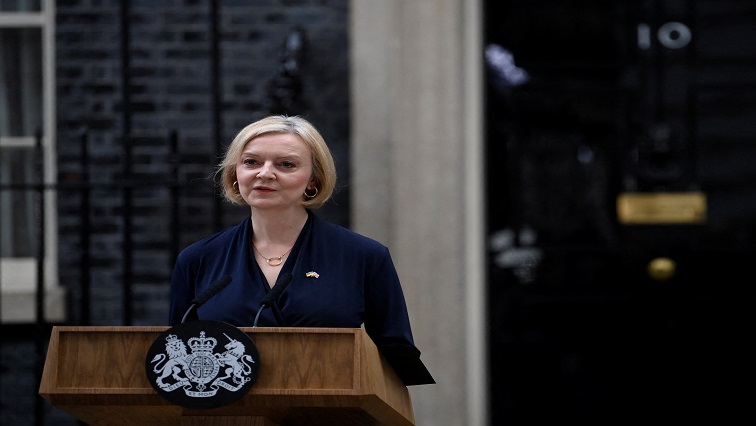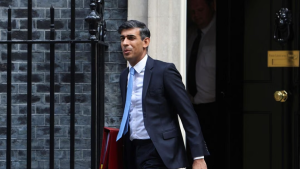Liz Truss said on Thursday she was resigning as British prime minister, brought down by her economic programme that sent shockwaves through the markets and divided her Conservative Party just six weeks after she was appointed.
Below is the full text of her speech in Downing Street:
“I came into office at a time of great economic and international instability. Families and businesses were worried about how to pay their bills, Putin’s illegal war in Ukraine threatens the security of our whole continent and our country has been held back for too long by low economic growth.
“I was elected by the Conservative Party with a mandate to change this. We delivered on energy bills and on cutting National Insurance. And we set out a vision for a low tax, high growth economy that would take advantage of the freedoms of Brexit.
“I recognise though, given the situation, I cannot deliver the mandate on which I was elected by the Conservative Party. I have therefore spoken to His Majesty the King to notify him that I am resigning as leader of the Conservative Party.
“This morning I met the chairman of the 1922 Committee, Sir Graham Brady. We’ve agreed that there will be a leadership election, to be completed within the next week. This will ensure that we remain on a path to deliver our fiscal plans and maintain our country’s economic stability and national security.
“I will remain as prime minister until a successor has been chosen. Thank you.”
Hunt not standing for leadership
Britain’s finance minister Jeremy Hunt will not stand in the Conservative Party leadership contest to succeed outgoing Prime Minister.
Liz Truss Premiership hangs in balance:
What you need to know
Following are latest events, comments and context:
POLITICS
* Truss said the Conservative party she heads would hold a leadership election to be completed within a week.
* Truss’s resignation came after she lost her interior minister, Suella Braverman, less than a week after she fired her finance minister. Braverman cited “serious concerns” about the government.
MARKETS
* Sterling rallied after Truss resigned. The FTSE turned negative. Britain’s midcaps FT jumped as much as 1%.
* Investors reined in bets of a full percentage-point interest rate increase by the Bank of England next month, after a top official said it remained to be seen whether rates rise as sharply as the market has been expecting.
* The biggest jump in food prices since 1980 pushed British inflation to 10.1 percent last month, matching a 40-year high hit in July in a new blow for households grappling with a cost-of-living crisis.
WHAT’S BEHIND THE CRISIS?
* The Bank of England was forced into emergency bond-buying to stem a sharp sell-off in Britain’s 2.1 trillion pound ($2.3 trillion) government bond market that threatened to wreak havoc in the pension industry and increase recession risks.
* The sell-off began after then-new finance minister Kwasi Kwarteng’s tax-cut announcement on September 23.
* After firing Kwarteng, a close friend and ally, on Friday, Truss announced that corporation tax would rise to 25% as intended by her predecessor Boris Johnson, reversing her earlier plan to freeze it at 19%. Kwarteng’s cut to the highest rate of income tax had already been reversed.
* His replacement Hunt on Monday then scrapped “nearly all” of Truss and Kwarteng’s economic plan and scaled back her vast energy support scheme, announced in September, in a historic U-turn to try restore investor confidence.
* The BoE interventions have highlighted a growing segment of Britain’s pensions sector – liability-driven investment.
* LDI helps pension funds use derivatives to “match” assets and liabilities to avert risks of shortfalls in payouts, but the soaring interest rates have triggered emergency collateral calls for those funds to cover the derivatives.






